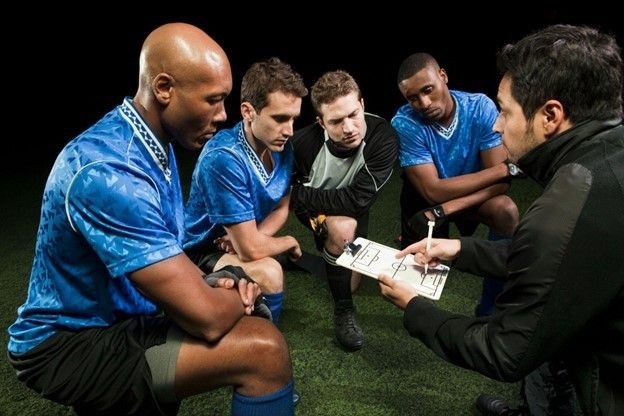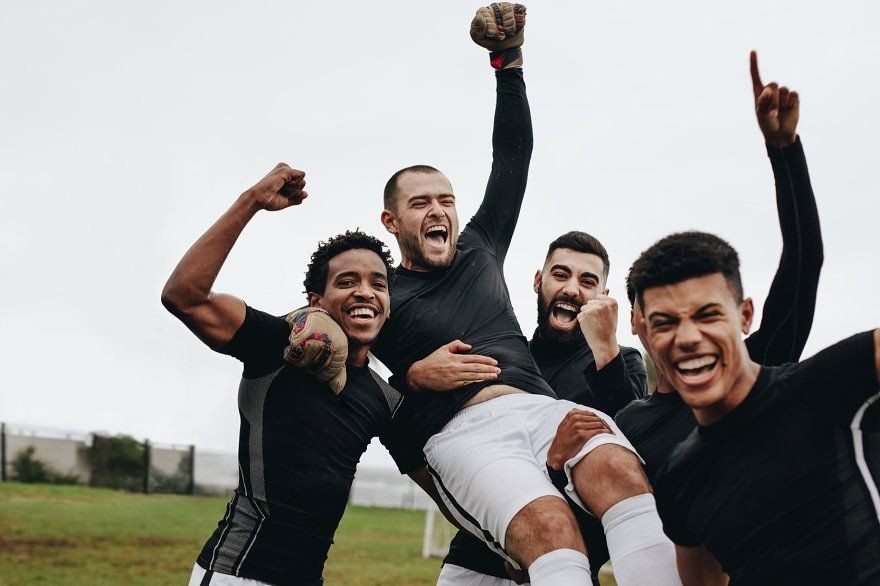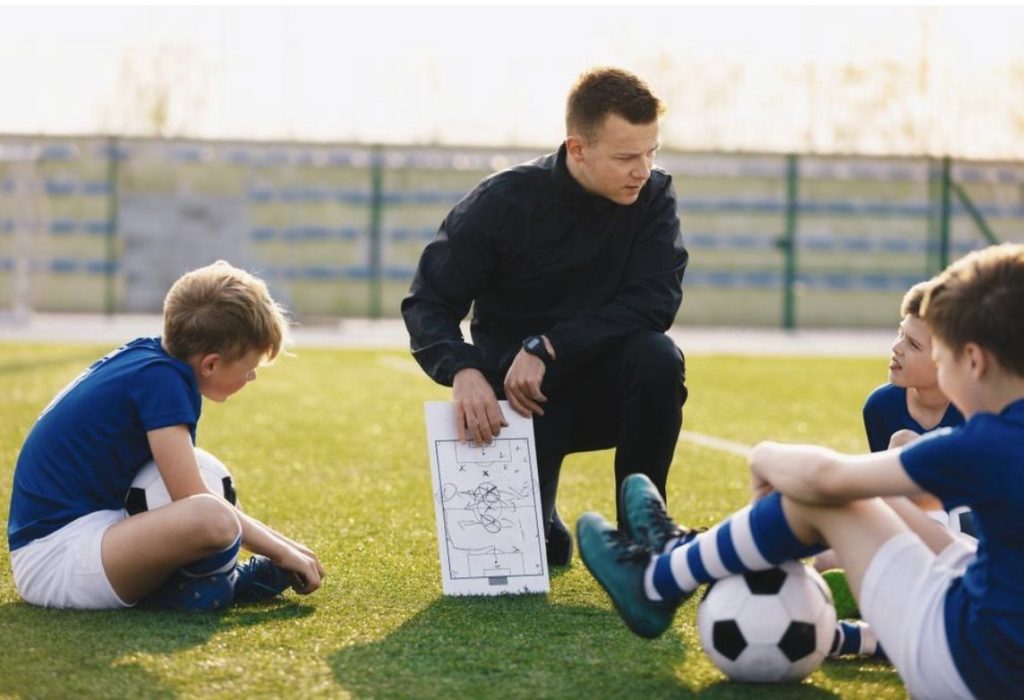Leadership doesn’t start with a title. It starts with how you practice, how you treat teammates, and how you handle tough moments.
That’s why sports matter as they bring out leadership in real time, on the court, on the field, in the locker room.
You learn to speak up, take the lead, take the blame, and bounce back. And the more you play, the more those lessons stick.
This is where a lot of students and athletes begin to grow into the kind of leaders others look to, without even realizing it at first.
How Sports Help Athletes and Students In Leadership
- How sports build leadership traits like communication, confidence, and resilience
- What coaches look for in student leaders and team captains
- The habits that help players become mentors and role models
- How students and athletes overcome pressure, failure, and responsibility
- Why leadership matters in school, sports, and future careers
Common Leadership Challenges and How Sports Help You Handle Them
Sports not only promote physical fitness but also instill crucial leadership traits like accountability, communication, and decision-making. These values are especially important for students and young athletes as they prepare for future academic and professional challenges. Platforms like Sportsboard India actively highlight such developmental aspects by covering stories, stats, and initiatives that showcase how sports shape leaders both on and off the field. It’s a great resource for educators, coaches, and parents looking to guide the next generation of athletes.

This is where sports and leadership development connect in a powerful way.
Through sports, you get the repetitions, not just in skill, but in leadership:
- You learn how to bounce back after a loss without blaming others.
- You figure out how to speak up when the team needs direction.
- You learn to stay composed when emotions are high.
- You grow stronger when things don’t go your way.
All of these moments build leadership skills in athletes, one practice at a time.
That’s the real benefit of sports in student development. It’s not just about the scoreboard. It’s about how you respond, how you lead, and how you keep showing up.
15 Ways Sports Build Leadership Skills in Students and Athletes
These are the skills that grow quietly, while you’re training, competing, and showing up for your team.
1. Working With A Team
Playing on a team means learning to work with different personalities, strengths, and styles. It’s not always a piece of cake, but it teaches you how to connect, support, and communicate with others.
Good leaders in sports know how to bring people together. Teamwork is where that starts, by putting the group above yourself.
2. Making Tough Decisions
In a close game, you don’t get time to stop and think; you make a decision and live with it. These fast decisions build confidence and leadership in real time.
Athletes who lead know how to stay sharp under pressure. Playing physics-based games can also help develop that kind of calm thinking, which carries over into life off the field too.
3. Communicating Clearly
Every strong team has strong communication behind it. Whether you’re calling a play, giving feedback, or checking in with a teammate, your words always matter.
Student leadership through sports grows when players speak clearly and listen well to everyone. It’s a skill that builds trust and keeps teams connected to each other.
4. Setting Goals That Matter
Athletes work toward goals every day – every time – every second, win this game, improve that skill, hit that time. Setting clear goals teaches you how to stay consistent, focused, and keep moving forward.
Leaders know how to aim for something and help others do the same. Sports give you constant chances to practice that mindset.
5. Staying Disciplined
Waking up early, training when you’re tired, sticking to the plan and goal, it takes discipline. That daily grind builds something solid inside you.
Leadership training through athletics begins with consistency. If you can hold yourself accountable, others will start to count on you, too.
6. Resilience After Loss
Losing hurts, and so does making a mistake in front of a crowd. But these moments teach resilience, the kind that helps you lead through hard times, not just the good ones.
This is where the role of sports in character building really shows. A leader doesn’t quit after a setback; they reset and go again.
7. Guiding Younger Teammates
When you help someone newer, you learn patience, responsibility, and how to lead by example. It’s not about being perfect, it’s about being someone others can count on.
Mentoring is a big part of student leadership through sports. It builds quiet influence and helps you grow into a steady presence on the team.
8. Leading Through Actions
You don’t have to say much to lead. Hustling in drills, showing up early, giving effort when others are tired, that speaks louder than words.
This is one of the core leadership skills in athletes. Your habits tell teammates what kind of standard you bring, and they follow that energy.
9. Showing Respect In Tough Moments
It’s easy to get frustrated at decisions that don’t go your way. But real leadership shows when you stay composed and respectful to that decision, no matter what.
This is how sports teach responsibility. Staying calm under pressure builds maturity that people notice, on and off the field.
10. Taking Responsibility
Leaders don’t blame to teammates. They own their choices, on the field, in the classroom, and in daily life. That kind of responsibility earns respect.
Team sports and leadership go hand in hand here. The choices you make don’t just affect you, they affect the whole group. Leaders keep that in mind.
11. Handling Conflict The Right Way
Disagreements happen anytime in your team. Whether it’s over playing time, effort, or attitude, leaders learn how to talk things through without making it worse.
Sports and leadership development go together when it comes to solving problems. Leaders don’t avoid tough conversations, they face them with honesty and respect.
12. Managing Your Time
Balancing school, practice, rest, and social life isn’t easy. But athletes who manage it well start building leadership through discipline and focus.
This is one of the benefits of sports in student development. Time management helps you stay on track, and it’s a skill that shows up for the rest of your life.
13. Lifting Others During Tough Seasons
Every team has falls, but good leaders always help keep everyone motivated even when things aren’t going right. That’s where quiet encouragement goes a long way.
Leadership training through athletics isn’t just about being vocal. It’s about showing up with belief when it’s hard to find, and helping others do the same.
14. Building Trust with Your Team
Teammates follow people they trust blindly. That trust comes from showing up consistently, being honest, and doing what you say you’ll do.
It’s one of the key qualities of a student and athlete leader. Trust isn’t given because of your talent; it’s earned through your behavior over time with each and every one.
15. Using Feedback to Grow
Nobody plays a perfect game. Leaders take feedback seriously, not personally, and use it to improve.
This is how sports develop leadership skills that last. When you stay open to coaching, you grow faster. And when teammates see that, they’re more likely to grow too.
What Makes a Good Leader in Sports and School Life
Leadership shows up in how you act. Some of the best leaders are the ones who show it through their actions, not their title.

In both sports and school, the same leadership habits show up:
- Put in consistent effort, whether it’s a hard practice or a group project.
- Stay calm under pressure and help others do the same.
- Take responsibility without blaming and excuses.
- Support teammates and classmates without needing credit.
- Speak up when needed, but know when to listen.
These are the real qualities of a student and athlete leader. Sports and leadership development are connected by how you treat people and how you carry yourself, even when no one’s watching.
Why Leadership Matters for Every Student and Athlete
Leadership isn’t just for captains or starters. It’s for any student or athlete who wants to step up, support others, and set the tone on the field, in class, or in life.
The habits you build in sports stay with you, and they show up when it counts most.
Leadership matters because it helps you:
- Earn trust from coaches, teachers, and teammates.
- Stay calm and make smart decisions under pressure
- Be the one others count on when things get tough
- Stand out in college, job interviews, and future teams
How Coaches and Schools Can Build Leadership Through Sports
Leadership doesn’t happen by accident. Coaches and schools play a big role by creating real opportunities for student-athletes to step up and lead.

Simple programs and daily routines can help:
- Captain meetings where athletes help set team goals and expectations
- Peer mentoring between older and younger players
- Monthly leadership groups to solve team issues or plan events
- Team-building sessions that focus on values, communication, and trust
These experiences give athletes room to practice leadership in a way that sticks. It’s not just about becoming a better player; it’s about becoming a better person.
Bonus: For students aiming higher, programs that value leadership, like international student sports scholarships, often look for athletes who lead by how they train, act, and contribute to their teams.
Also Read:
Conclusion: Sports Have a Strong Hand In Building Leadership Skills In Students and Athletes
Leadership doesn’t always come with a big moment. Most of the time, it builds through small choices, how you train, how you treat people, how you handle pressure.
Sports give you a real place to build those habits. Every small game, every practice, every challenge is part of that growth.
What you learn through sports, communication, responsibility, and resilience doesn’t end when the season does. These are leadership skills that follow you into school, work, and life.
If you take those lessons seriously, you’re not just becoming a better athlete. You’re becoming someone others will want to follow, on and off the field.
FAQs
It’s shown in how you practice, how you treat teammates, and how you handle pressure, not just what you say.
Leadership isn’t always loud. Many quiet athletes lead by example, through consistency, effort, and how they carry themselves.
Team sports teach group leadership, but even solo sports build confidence, self-discipline, and accountability.
It can start early, whenever a young athlete begins taking ownership of their effort, attitude, and actions.
As parents & coaches, giving athletes a voice, modeling steady behavior, and letting them handle responsibility all help leadership grow.
